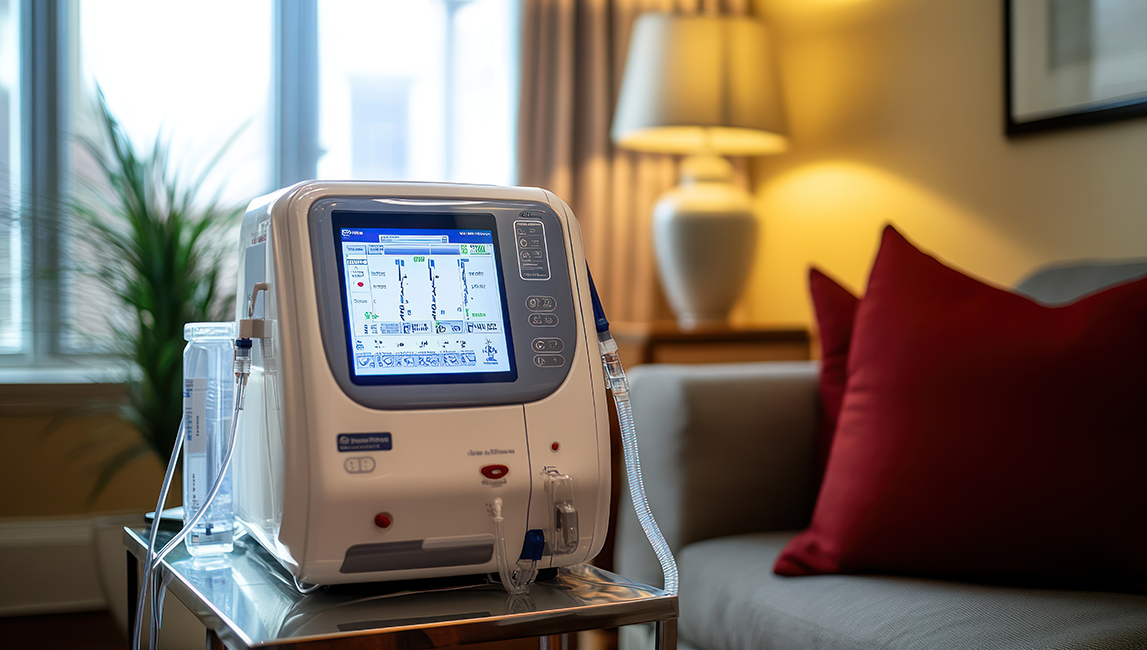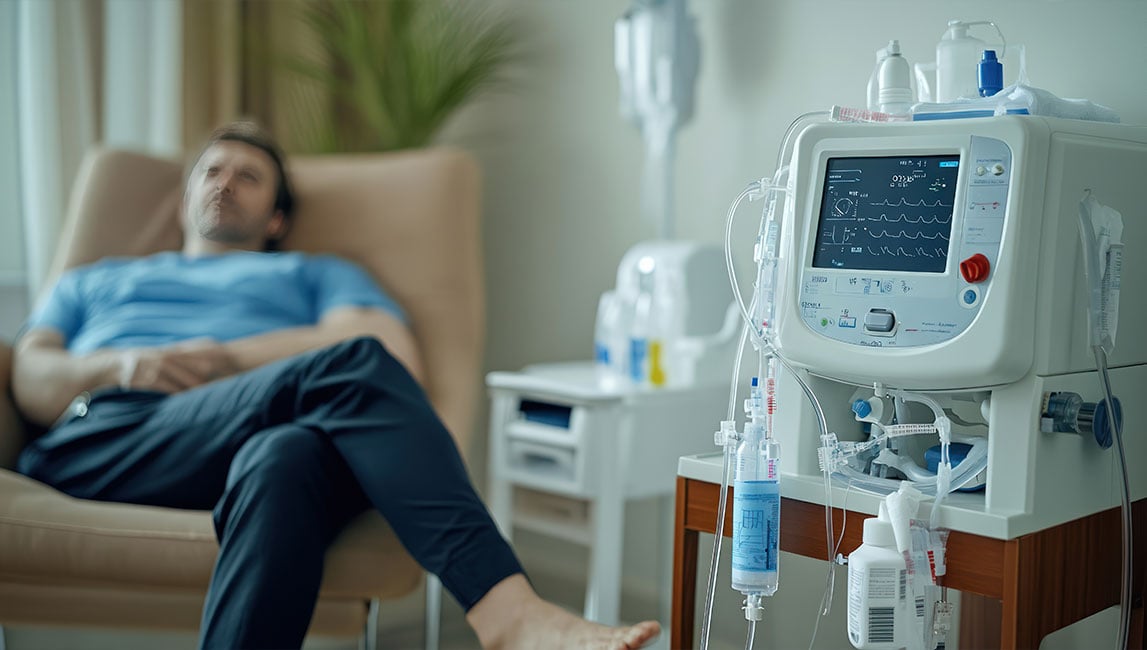Case Study
Pioneering Front-End Innovation for a Next-Gen Home Dialysis Machine

BOM Cost Savings
Cost of Disposables
Innovative Ideas Developed
Background
A leading global healthcare company specializing in renal care innovation, critical care, and surgical products aimed to strengthen its position in peritoneal dialysis (PD) by developing an advanced automated peritoneal dialysis (APD) cycler. This initiative aligned with the Advancing American Kidney Health directive, which set a goal for 80% of end-stage renal disease (ESRD) patients to receive home-based dialysis or a kidney transplant by 2025.
The customer sought an innovation partner to reimagine the system and therapy approach, focusing on cost optimization, enhanced performance, and improved user experience. The objective was to develop a proof of concept that demonstrated the required performance while significantly reducing dialysis machine cost and consumable costs.
Challenge
Developing an innovative APD cycler from scratch came with significant challenges and demanded smart front-end innovation in medical devices. The client aimed to balance cost, performance, and ease of use without any existing reference design. Keeping the total device cost under $1500 while ensuring regulatory compliance required careful design, material selection, and engineering.
Reducing dialysis consumable costs to under $1 per use added further complexity, demanding cost-efficient design without compromising on quality or reliability. With no benchmarks to follow, the team had to define performance standards for a next-gen system.
Selecting the right heating and pumping technologies was critical as these needed to deliver precision and efficiency at a lower cost. Ensuring consistent fluid exchange, long-term reliability, and a user-friendly design made the task even more demanding.
Solution
- With no reference design and ambitious cost targets, the team adopted a user-centric approach from the outset. The goal was to develop a modular, scalable, and reliable APD system tailored for home care.
- A functional prototype was created early to validate core capabilities, such as high flow rates (fill: 100–280 mL/min; drain: 15–220 mL/min), optimized pressure control for reduced downtime and patient safety, and a ±12-inch catheter head height tolerance, a notable engineering feature, for flexible setup without performance loss.
- Detailed risk assessments and performance testing ensured the concept could meet both clinical and user expectations. Most critically, a low fill/drain volume error of ±5% or ±10 mL ensures precise fluid exchange, supporting effective therapy over time.
- To achieve cost goals, the Bill of Materials was streamlined and consumables redesigned with innovative materials and shapes, reducing cost and plastic waste without quality compromise. Precision components like an advanced peristaltic pump and mica-based heating were chosen for reliability and efficiency. Automated testing using Python and Arduino accelerated validation and development.
- Through a blend of smart engineering, cost optimization, and clinical insight, the team successfully delivered a scalable, precise, and patient-centric APD system designed for the evolving needs of long-term home dialysis.

Impact
- Achieved ~30% improvement in performance and 35% dialysis machine cost reduction, boosting market competitiveness and accessibility.
- Lowered the cost of disposable medical device by 30% with intuitive loading mechanisms, improving ease of use for patients and caregivers.
- Advanced peristaltic pump design enhanced accuracy, minimized asymmetric errors, and improved reliability.
- Delivered industrial design focused on human factors, comfort, safety, and future healthcare alignment.
- Strengthened market position with smart algorithms, innovative features, and cost benefits.
- Reduced plastic waste, supporting global goals for sustainable healthcare.
Services rendered
Tata Elxsi
- User-centered Research & Insights
- Technology Innovation & Concept Development
- Integrated Engineering Design & Development
- Performance Validation & Cost Optimization
- Business & Program Strategy Support
Value Engineering Services: Why Companies Should Adopt Them
Industries ranging from healthcare and consumer goods to automotive and technology are grappling with intensifying competition.
Ensuring Excellence in Biocompatibility Compliance as per the new EU MDR Standards
Achieving Safety and Efficacy in Medical Devices through Biocompatibility Compliance
Re-Engineering Laser-Based Lithotripsy deveice for performance and Ease of use
Our client is a Germany-based medical devices manufacturer known for its pioneering technologies and revolutionary therapies in the field of urology.
